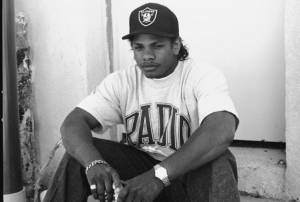Dr. Dre opened up about N.W.A. during a recent appearance on Peacock’s Hart to Heart. The group was one of the most influential rap groups of all time, helping define the genres of rap, hardcore rap, and gangsta rap. The gangsta rap label is one that members like Dre seemingly embraced at the time.
“Just another muthafuckin’ day for Dre, so I’ll begin like this/ No medallions, dreadlocks or Black fists/ It’s just that gangsta glare with gangsta raps/ That gangsta shit makes a gangs of snaps, uh,” Dre spat on 1992’s “Let Me Ride”. However, in his interview on the Kevin Hart talk show, Dre revealed that he actually took issue with the label.
Read More: Rick Ross explains Dr. Dre’s perfectionism with studio story
Dre Let Gangsta Rap Label Slide
“By the way, I never liked it being called that, ‘gangsta rap,’” Dr. Dre admitted. “That’s never what we went in to do. We were just making hardcore Hip Hop. That’s all it is. I don’t know why it got that title, or who gave it that title. I don’t know who the fuck that was but, it wasn’t us.” When Hart asked why Dre and the other N.W.A. members allowed it to be repeated, Dre simply said that “We let it go. We just embraced it and let it go, but that’s not what we decided to do,” he continued. “That’s not what we called. We [were] just doing Hip Hop. Hardcore Hip Hop,” Dre continued.
The interview also revealed that Dre did not come up with The Chronic himself. “The difference, there was money and business got involved, and it separated the friendship,” he said. “I had to separate myself from [Eazy-E] because he decided to take a different route. [Ice] Cube had already left, so I’m out here on my own. I have absolutely no idea what the fuck I’m gonna do. I just know I have this talent. A close friend of mine, we’ll call him D.O.C., talked me into doing the Chronic album,” he continued. “It wasn’t my decision, I was talked into doing that. I just went in there and went for it because I felt, at that time, it was a life or death situation.”
[via]
The post Dr. Dre “Never Liked” N.W.A. Being Labeled Gangsta Rap appeared first on HotNewHipHop.



